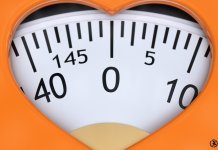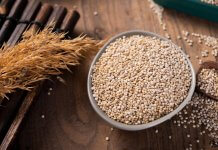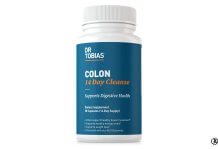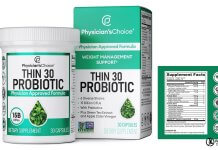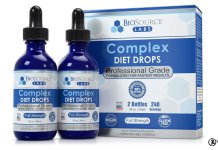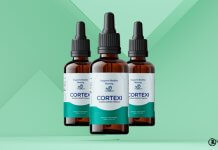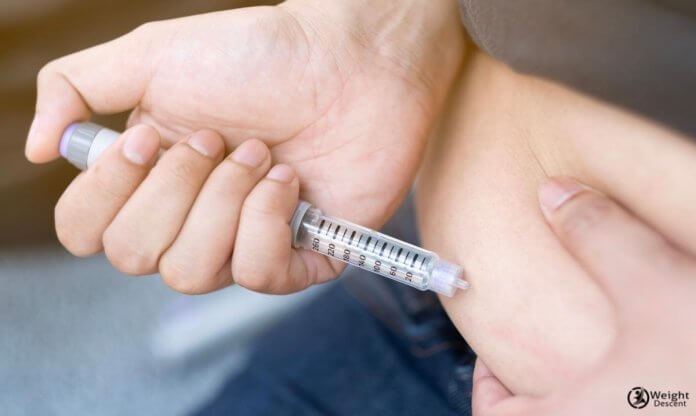I get commissions for purchases made through links on the site. As an Amazon and Clickbank Associate I earn from qualifying purchases. Learn more.
While a healthy diet and exercise are the best way to shed those extra pounds, they don’t work all the time. Some folks go for modern medicine; others use weight loss fads that leave them with undesired side effects. If you want to lose weight without a strict diet, you can try weight loss injections. Here is what you should know about slimming injections.
Estimated reading time: 8 minutes
Table of contents
- HCG Diet Drops Program – The HCG Diet Drops program has grown in popularity because it claims to offer an easy and effective way to shed excess fat and weight. The fame has been fueled more by the many positive HCG reviews the program has received, even from known celebrities.
Types of Weight Loss Injections
Weight loss injections can be used to get rid of small pockets of fat around the abdomen, chest, knees, thighs, and ankles.
If you’re looking for a quick-fix weight loss solution, there are a few options to consider.
Lipotropic
Lipotropic injections feature fat-burning properties. The main chemicals that make these injections are chlorine, methionine, and inositol.
B12
Injecting vitamin B12 into the body helps to increase metabolism and forces the body cells to release more energy. It also reduces adipose tissues in the body and aids in the production of red blood cells.
B12 occurs naturally in food products like meat, eggs, and shellfish. Even as you watch what you eat, the B12 injections can help you lose more.
Pros
- You can administer it at home
- You can use it on different parts of the body, including the chin and belly
Cons
- Not clinically proven to aid in weight loss
- Those with leher’s disease may be allergic to B12 injections
Safety, risks, and side effects
This weight injection is associated with mild side effects like:
- Diarrhea
- Feet and ankle swelling
- Irregular heartbeat
- Unusual weakness and tiredness
- Redness around the injection site
Lipotropic and Vitamin B
An injection that contains vitamins B1, B2, B3, B6, and B12, as well as Lidocaine and lipotropic can help with your weight loss goals. The vitamins ensure your body is not starved. Any product that uses lipotropic and vitamin B12 has a positive effect on your body. The two components help to burn body fat and release energy.
If you’re allergic to lidocaine, you may want to avoid such injections.
Saxenda Weight Loss Injections
Saxenda is the synthetic form of glucagon-like peptide GLP-1. It makes you fuller for longer, so you eat less. Unlike other weight loss injections, this product helps you lose weight permanently.
Pros
- It improves the glycemic index to help you keep the glucose levels at a normal range
- Because it’s injectable, you don’t need to consult your doctor every time
- The effects are magnified when used together with a healthy diet
- It’s clinically proven to help with weight loss
- It comes with very few side effects
Cons
- The effectiveness will depend on the condition of your body
- Some people can feel nervous after the injections
Human Chorionic Gonadotropin (HCG)
HCG occurs naturally in the body, especially during pregnancy. When used with a low-calorie diet, you can reap the benefits of a dramatic weight loss. It works by boosting the metabolic rate, so you can easily lose a large amount of fat without starving.
Pros
- The injection provides an organized action plan
- Works without the feeling of hunger
Cons
- A bit expensive
- Research suggests that it works with extreme calorie cut
Are there any risks or side effects?
When it comes to the risks and safety of the HCG injections, there are a couple of things to consider. Due to calorie deprivation, you may experience:
- Brain fog
- Dizziness
- Fatigue and headache
- Binge eating
Since your doctor may recommend a diet that omits calories like dairy and grains, you may experience nutritional deficiencies.
Oxygen Injections for Weight Loss
This type of injection improves the metabolic rate in the body systems to burn fat. It also exhibits analgesic and anti-inflammatory properties.
If you’re not sure which injection is right for you, you should consult a medical professional for advice. Don’t forget to do some research before you choose the one that suits you best.
- Over 30 Hormone Weight Loss Solution – It is designed to enhance your metabolism and repair your thyroid and hormone irregularities. The formula is 100% free from anti-biotics and prepared by using non-GMO ingredients.
Benefits
- They are non-invasive
Unlike other types of weight loss treatments, slimming injections allow your body to lose fat fast. When properly administered, you’ll start to see the results in weeks.
- Increases metabolism
Your body’s metabolism plays a key role in weight loss. Those injections that contain vitamin B6 and B12 help to burn even more fat.
- Detoxify the liver
The main role of the liver is to remove waste products from the body. If it’s not working to capacity, your body hormones could be thrown off the balance. Weight loss injections detoxify the liver making it easier to lose weight.
- Improve sleep quality
Recent research suggests that, people who struggle to get a good night’s sleep find it hard to lose weight. If you have symptoms of sleep deprivation, you’re likely to gain more weight than what you lose. Weight loss injections rich in B vitamins help to regulate the sleep pattern.
Side Effects
While weight loss injections help your body burn fat faster, they come with some side effects.
- Tenderness or pain on the injected spot
Since the injections are sent to the body through a needle, you may feel some pain at the point of the injection. However, the pain goes away quickly. If it persists after a few days, that could be a sign of an infection.
- Upset stomach
Weight loss injections feature different vitamins and substances. If you don’t hydrate well, you could be putting a strain on your digestive system.
- An allergic reaction
A lipotropic shot can trigger allergic reactions like hives, swelling, itchiness, and shortness of breath. If you experience an allergic reaction, you should get medical intervention immediately.
- Nausea and vomiting
Nausea is a common symptom for those taking weight loss injections but tends to disappear with time. The best way to deal with the problem is to take products that contain ginger.
- Diarrhea
This is a common side effect of weight loss injections. The most important thing is to stay hydrated and avoid fizzy drinks if possible.
- Heartburn
If you experience heartburn, you should watch your portions. You can always add more if you still feel hungry. Avoid eating during bedtime as this may aggravate the condition.
- Constipation
Constipation can result in a host of other problems like anal fissures or hemorrhoids. If you experience constipation, you should increase your fiber intake and drink lots of fluids.
- Tiredness
You may feel tired as your body adjusts to the injections. To combat this problem, you must ensure you get at least 7-8 hours of good sleep.
What Are the Injections that Help you Lose Weight?
While there are so many weight loss injections, those that top the list are:
- Saxenda
Saxenda is one of the most effective weight loss injections for those who want to lose weight permanently. It contains an active ingredient Liraglutide which naturally occurs in the body as a GLP-1 hormone. Once you inject it into your body, you inhibit the work of the insulin, and you feel less hungry.
- Vitamin B2 riboflavin injection
If you want to speed up your weight loss goals, vitamin B2 injections can speed up the process.
Fat Burning Injections to Get Rid of Double Chin and Waist Fat
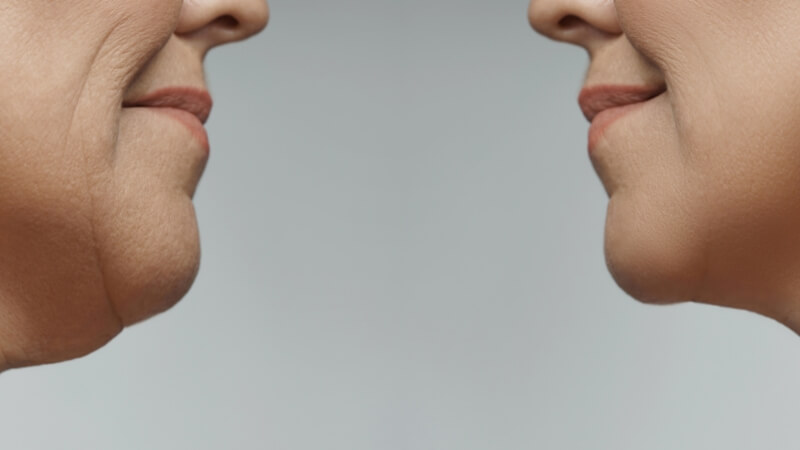
A double chin refers to fat deposits under the chin. You can break down the fat through a series of injections. Another area where you can use fat-burning injections is around the waist and under the arms.
Preparing for Weight Loss Injections and Aftercare
Weight loss injections can be a valuable tool in your journey towards achieving a healthier weight. Whether you’re considering lipotropic injections, B12 shots, or other types of weight loss injections, proper preparation and aftercare are crucial for maximizing their effectiveness and ensuring your safety. In this comprehensive guide, we’ll walk you through the steps to prepare for weight loss injections and provide essential aftercare tips to help you achieve your goals.
Preparation Before Weight Loss Injections
- Consultation with a Healthcare Provider: The first step in preparing for weight loss injections is to consult with a qualified healthcare provider. They will assess your overall health, discuss your weight loss goals, and determine if injections are a suitable option for you.
- Medical History Review: Be prepared to provide your medical history, including any underlying health conditions, allergies, medications, and previous weight loss attempts. Your healthcare provider needs this information to ensure your safety during the injection process.
- Blood Tests: Your provider may recommend blood tests to assess your nutrient levels, hormonal balance, and overall health. These tests can help identify any deficiencies that could be addressed with specific injections.
- Set Realistic Goals: Have a clear understanding of your weight loss goals. Discuss these goals with your healthcare provider to ensure they are achievable and healthy for your body.
- Dietary Assessment: Depending on the type of injections, your provider may recommend dietary changes. Prepare by understanding the dietary guidelines you’ll need to follow before and after the injections.
- Hydration: Stay well-hydrated in the days leading up to your injection. Proper hydration can make the injection process more comfortable and assist in the absorption of nutrients.
- Avoid Alcohol and Smoking: It’s advisable to refrain from alcohol and smoking before your injections. These substances can interfere with the effectiveness of certain injections and may increase the risk of side effects.
During and After Weight Loss Injections
- Injection Procedure: During the injection, your healthcare provider will administer the solution using a sterile needle. The process is typically quick and relatively painless.
- Follow Medical Instructions: After the injection, carefully follow any instructions provided by your healthcare provider. This may include dietary recommendations, exercise guidelines, and specific aftercare steps.
- Monitor for Side Effects: Pay attention to any potential side effects such as pain or swelling at the injection site, allergic reactions, or changes in energy levels. If you experience any unusual symptoms, contact your healthcare provider immediately.
- Diet and Nutrition: Stick to the recommended diet and nutrition plan outlined by your provider. Some injections may require specific dietary restrictions or preferences to enhance their effectiveness.
- Stay Hydrated: Adequate hydration is essential for the proper functioning of weight loss injections. Continue to drink plenty of water to support the flushing of toxins and the transport of nutrients.
- Regular Check-Ins: Maintain regular follow-up appointments with your healthcare provider. These check-ins allow your provider to monitor your progress, make any necessary adjustments, and address any concerns you may have.
- Lifestyle Changes: Weight loss injections work best when combined with a healthy lifestyle. Incorporate regular physical activity, manage stress, and prioritize sleep to optimize your results.
- Patience and Consistency: Understand that weight loss is a gradual process. Be patient and consistent with your injections, dietary choices, and lifestyle modifications.
- Support System: Seek support from friends, family, or a support group to help you stay motivated and accountable throughout your weight loss journey.
By following these preparation and aftercare guidelines, you can make the most of your weight loss injections and work towards achieving your desired weight and health goals. Always consult with a healthcare professional to ensure that weight loss injections are safe and appropriate for your individual needs.
Frequently Asked Questions (FAQs)
If you’ve failed to lose weight on diet and exercise, Saxenda can be a reliable weight-loss treatment. It contains Liraglutide, a naturally occurring hormone in your body.
This injection keeps hunger pangs at bay, so you feel fuller for longer. It works better if you incorporate a calorie-controlled diet and an active lifestyle.
On average, weight loss injections cost $35 to $75. This depends on the brand and the package. They are expensive because they are not covered by insurance. Some providers offer package discounts, so you may want to be on the lookout.
Yes. They reduce fat cells in the treated area. After a few weeks, you can get rid of those wobbly bits.
Once injected, the body produces adenosine monophosphate, which helps in the breakdown of glucose levels. It also slows the breakdown of food. After a few months, you’ll start to see some results.
Depending on the injections you choose, the results can last for 2-4 years. This could last longer if you exercise and eat a healthy diet. However, if you experience significant weight gain after you take the injections, your body could store new fat.
While some fat dissolving injections promise lasting results, you must be committed to managing long-term weight loss. That said, you should stick to a diet low in carbs, healthy fats, and unprocessed sugars.
If you take 3.0mg daily, you should expect to lose about 5% of total body weight after 10-12 weeks. If you don’t get any results, you should discontinue the treatment immediately.
- Yoga Burn Renew Supplement – Yoga Burn Renew is a daily supplement that encourages better sleep to help with weight loss. The formula includes multiple ingredients that relax the mind and body, reducing the risk but staying up late every night.
Wrap up
Overall, weight loss injections are considered safe for those who want to shed extra pounds. However, you should combine with a healthy diet and exercise. When considering whether the injections are right for you, you should keep a few things in mind. Age is a key factor as such injections are not recommended to persons over 60 years. Of course, you should avoid the injectable if you have a skin disease or fat processing disorder.



